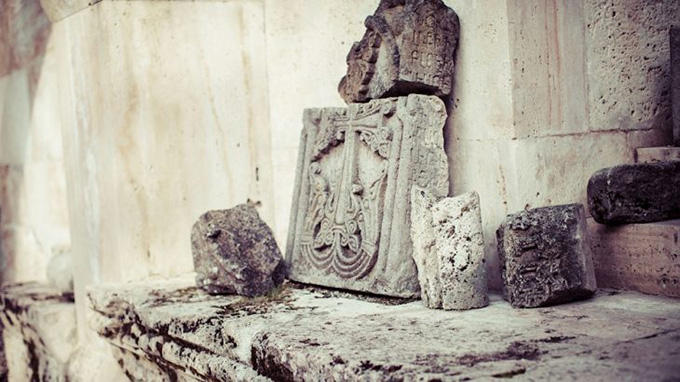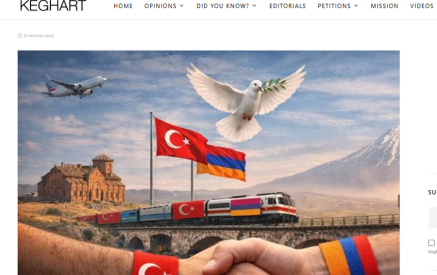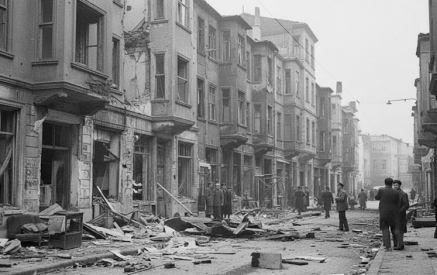Dozens of men with sledgehammers pound slabs of stone in an otherwise empty mountainous field. Filmed in 2005 by the prelate of northern Iran’s Armenian church, Bishop Nshan Topouzian, the clip purports to show the destruction of khachkars, ornately carved headstones from a Christian graveyard, some dating back to the 6th century.
The site is in Nakhchivan, an enclave of primarily Muslim Azerbaijan geographically separated from the country by primarily Christian Armenia. Iran shares its southern border in the ethnically tangled web of states that make up the Central Asian Caucasus. Russia is to the north, Turkey to the west.
The destruction of more than 2,000 khachkars—in addition to 89 churches, 5,480 cross stones, and 22,000 tombstones—has been labeled “the greatest cultural genocide of the 21st century” by Simon Maghakyan, an Armenian American activist and scholar whose research was profiled in the Guardian. He believes the move represents a campaign by the Azerbaijani government to wipe out its Christian heritage.
“The destruction of these khachkars seems to match in scale and tragedy ISIS’ destruction of Palmyra in Syria and the Taliban destruction of the Bamayan statues in Afghanistan,” said Wissam al-Saliby, advocacy officer at the United Nations for the World Evangelical Alliance.
Read also
“This issue goes beyond religious freedom. It is the heritage of mankind.”
But Azerbaijan denies Armenians ever lived in Nakhchivan, and cites similar cultural cleansing of Muslim heritage across the border. Centuries of mutual recrimination have resurfaced, as Azerbaijan presents itself internationally as a model of interfaith coexistence.
Other political factors also interfere. The Armenian-majority enclave of Nagorno-Karabakh wants independence. Now, 25 years after its ceasefire with Azerbaijan, France, Russia, and the United States are chairing a peace committee while the region exercises de facto autonomy.
And in 2018 a popular “Velvet Revolution” brought a leadership change to Armenia, ushering in new hope and negotiations for peace with Azerbaijan. Both nations were former states of the Soviet Union, achieving independence in 1991.
Armenia, the first nation to officially adopt Christianity as its state religion, is a traditional ally of Moscow, hosting a Russian military base. Azerbaijan, a Shiite-majority nation, has troubled ties with Iran but good relations with Israel. It is this feature that has attracted recent attention from the US evangelical world.
Jayson Casper
christianitytoday.com























































